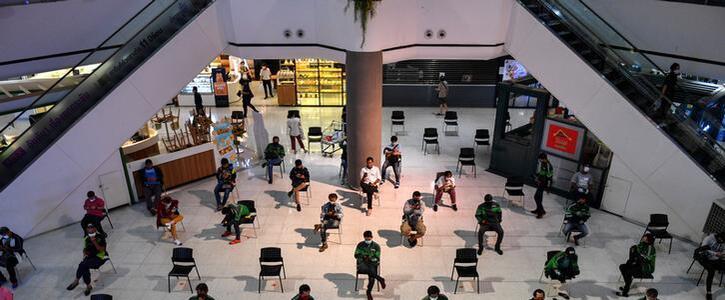To establish an independent public inquiry into the impact of Covid-19 in Black, Asian and Minority Ethnic (BAME) communities across the UK.
Why is this important?
Over the past month, the UK has witnessed the unprecedented spread of Covid-19 – it has infected around 90,000 and killed more than 11,000 people in hospitals (mid-April 2020).
As we know the true numbers infected and/or died, is under-represented due an absence of wide-spread testing (front-line staff and community) and through a lack of data from Britain’s care homes.
The disturbing images we see via our televisions and social media channels of those who have died make uncomfortable viewing. We see a selection of faces of doctors and nurses, bus drivers and care home workers all killed. All of whom represent our frontline workers in this battle against the spread of the virus.
The evidence from the deaths of these frontline workers clearly show that a disproportionate number of people from Black, Asian and Minority Ethnic (BAME), who have been infected, are dying from Covid-19. Although BAME people represent some 14% of the UK population, available evidence suggests that some 35% of this group have been impacted (Intensive Care National Audit & Research Centre, 4 April 2020).
Government experts are suggesting causes include social and economic factors, overcrowding and multigenerational living. However, they fail to acknowledge some of the well-known, deeply entrenched inequalities which pervade British society, and which adversely impact BAME communities.
In most aspects of life, including education, housing and employment, BAME communities experience institutional discrimination, which has an adverse impact on life chances. Furthermore, several decades of health research consistently show that BAME communities experience worse health outcomes for conditions such as high-blood pressure, diabetes, coronary heart disease, HIV, breast and prostate cancer.
Many of these ‘underlying conditions’ are associated with poorer coronavirus outcomes, so it is little wonder that BAME frontline workers are being infected with Covid-19 to this extent.
The Ubele Initiative is a BAME led national organisation which supports BAME communities and recently co-produced a statement which supports this campaign.
Ubele will set up a Call to Action with a 10 point Community Action Plan which will be launched on Monday 27th April 2020.
Ubele call on the government to urgently conduct a full independent public investigation into why and how BAME front line staff including clinicians, care home workers and transport staff and the wider BAME communities are being disproportionately infected.
We urge the government to release Covid-19 data based on ethnicity from across all UK regions.
Furthermore, the government also needs to deliver on its’ testing policy and target the above groups of staff as well as the wider community.

